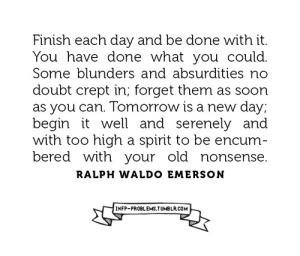But for those of us living with mental illness right now, how can we talk to our friends, family, and colleagues with our (horribly misguided) national tendency to conflate gun violence with mental illness? How can we talk when the national stigma is that we’re “crazy people?”
I’ve been living with bipolar disorder for fifteen years. Three weeks ago, I was hospitalized for an acute manic episode. I came home from a yoga retreat having not slept and not taken my medication. I entered a state of psychosis, believing there was a Nazi conspiracy against me and that I was in fact a boy named Michael. My friend contacted my mother and my loving and supportive parents called 911. The ambulance brought me to the hospital.
In my first week in the hospital, I punched nurses. I threw furniture. I screamed. As sick as I was, I was also extremely fortunate to get treatment. After three rounds of electroconvulsive therapy, my brain returned. I returned. Because of the ECT and the Lithium, I returned. And here I am, getting better.
My Heroes
Most people don’t know how to talk about mental illness because they don’t understand it. Well-meaning individuals tell depressed friends things like: “You should really try to work things out for yourself. Are you sure you need medication?”
When I was in college, I suffered from a debilitating depression. I started antidepressants and a good friend at the time told me she thought I should work things out on my own. I had no support system. I wasn’t showering or eating.
I still managed to attend some classes. I was taking a film history course with a brilliant professor I didn’t really understand. She gave me a B-minus on a paper I wrote on a Hitchcock film. Rewrites were possible, so I went to her office and met with her. I will never forget that meeting. I asked her how I could do better on the essay. She looked at me, and she said, “Michele—you are not allowed to rewrite this paper right now. Please stop working on it. My assignment to you is this: go to the movies.” She said what she said with so much care. In between the lines, she was telling me: I can see how depressed you are. You are too sick to work. You need to help yourself.
I’ve never forgotten that conversation. Because of that professor, I went back to the health center and got the support I needed.
These people—the ones who listened—have offered moments of grace throughout my life.
Two years ago, after a break up, I became depressed. I was still going through the motions of my life until one day, right before a meeting with my boss, something snapped inside me. I started crying at my desk. I knew I wouldn’t be able to handle my next meeting, so I typed an agenda, printed it out, and then walked to my boss’s office. In his doorway, I told him I was not feeling well and needed to go home. I started to hand him the agenda I’d printed. He looked at me and tilted his head to the side. “Wait—are you OK? Please come sit down.”
He closed the door behind him. He knew something was wrong. He asked me to tell him. I started to cry and told him, “I need to meet with HR. Something is wrong with me. I need a break.” He listened. And then he told me this: “Many years ago, I had a doctor write me a prescription that said, stop working for the month.” And he said, “Mental health is no different from physical health.” He told me to not worry about HR. To take the time I needed to get better.
He’s my hero. His kindness saved me.
How to Find Your Heroes
Not everyone knows how to listen when it comes to mental illness. I don’t tell everyone in my life I have bipolar disorder. Not everyone in my life needs to know. Not everyone is ready to listen. You can be proactive about finding your heroes, however. Here are a few tips:
- For starters, share with colleagues that you have a “chronic illness.” You don’t have to tell anyone you suffer from “depression” or “bipolar disorder” or whatever other specific ailment. You can share that you have a chronic illness and leave it at that.
- Tell friends in a way that doesn’t solicit unnecessary feedback. “I have bipolar disorder and I’m being treated with Lithium and psychotherapy,” you might tell friends. If someone offers you advice, you might say something like, “I appreciate your wanting to share advice but I’m getting very good treatment and would appreciate it if you can just listen.”
- People who are really there for you—your heroes—will show up. Just notice them when they do. This may be the friend who visits you in the hospital. This may be the colleague who just wants to support you. This may be the sister or brother who helps in whatever way you need.
Your heroes are out there. They’re the ones who listen. And you can be someone else’s hero too.
Show up. You may save someone’s life.
